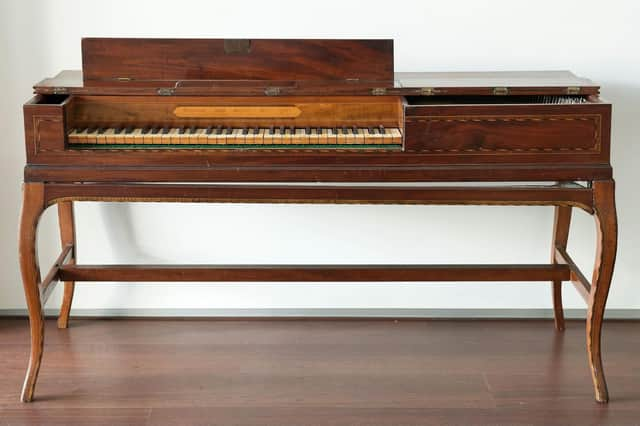Piano which set sail from Portsmouth in 1787 with the Royal Navy and was the first to be played in Australia returns home for repairs


The 'First Fleet Piano' set sail from Portsmouth, in 1787 on board HMS Sirius as property of the ship's surgeon. The journey took eight months, stopping in Rio de Janeiro, then on to Cape Town before reaching Sydney. The priceless piano - constructed by maker Frederick Beck - was the first keyboard instrument to ever arrive on Australian soil when it arrived in Botany Bay in 1788 and was used to teach the first generation of colonists how to play. When the surgeon, George Worgan, returned to England he left the piano behind where it passed many hands before becoming part of Edith Cowan University collection. Now 232 years on the square-style piano has been transported back to the UK - this time by air in just 21 hours - to be restored to its original condition. British restorer Lucy Coad will be taking on the challenging 10-month restoration before the piano is again taken back to Edith Cowan University, in Perth, where it lives. The 57-year-old, who is one of only a handful of people in the world who specialises in this type of piano, said the most difficult thing is ensuring that when restoration is complete it sounds just as it had done in 1786. She said: ‘We are proud to have been chosen to be the restorers of this historically important instrument. ‘It will take several months to return it to a playing condition because there are things missing on it now which need to be replaced and there is a lot of wood work that needs to be carried out. ‘I'll be deconstructing it and then gluing it back together rather like a three dimensional jigsaw puzzle. ‘The most important thing is to restore it as closely to what it was like when it was first built in 1786. ‘We don't want it to sound like a modern piano, so we will only use materials used in that century to rebuild it.’ The piano will be welcomed in London at a gala reception, at Australia House, this evening, before restoration begins.